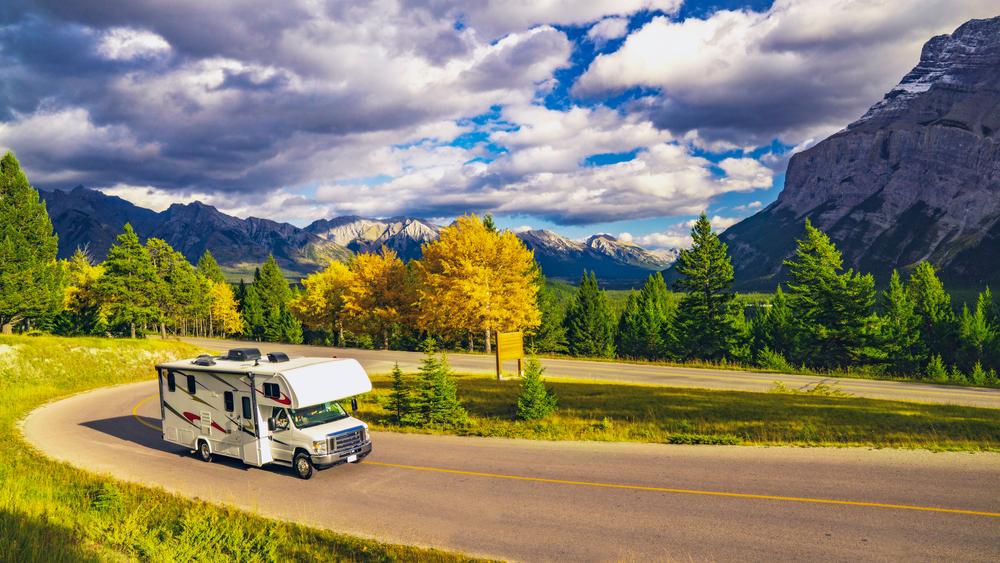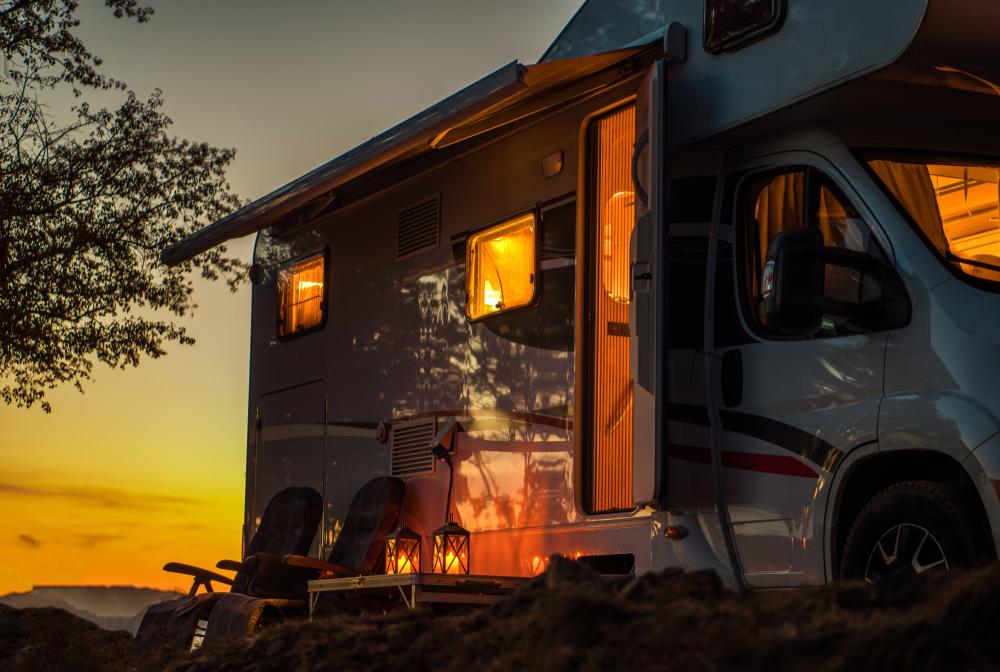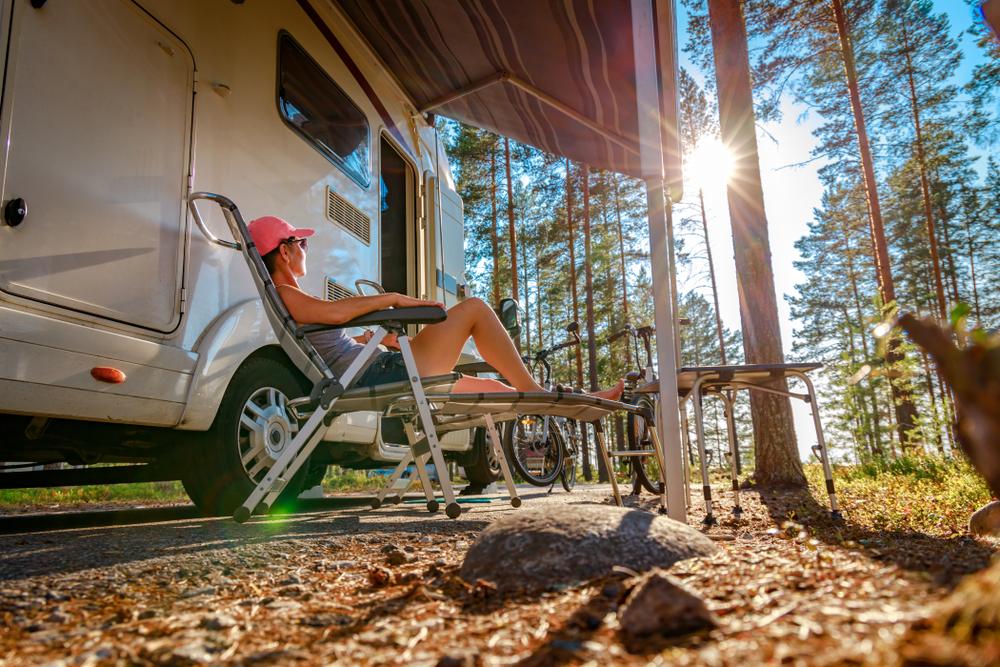
Owning an RV provides amazing opportunities for adventure and travel. However, RVs can also be susceptible to damage and theft when left unattended. Implementing some simple precautions can help keep your motorhome or trailer safe in between trips. In this blog post, we’ll explore parking strategies, locking mechanisms, tips for deterring theft, and ideas for safe storage to help you keep your RV secure.

Consider How You Park Your Trailer
One of the easiest ways to prevent RV trailer theft is to be strategic about how you park. Backing the trailer into a space may seem convenient, but it also makes it much simpler for thieves to hitch and steal your camper. Instead, take the extra moment to turn the trailer around before parking. Positioning the trailer hitch away from the parking lot access point creates an obstacle for would-be thieves.
Taking this small step to reposition your trailer requires a little extra time initially but pays off by making your RV much more challenging to mobilize quickly. Thieves looking for a quick score will move on to easier targets.
Making your trailer inconvenient and time-consuming to hitch up dissuades all but the most determined from attempting to steal it. Proactively parking to limit accessibility can be the difference between keeping and losing your RV investment.
Secure your trailer in every way
A locked door is a deterrent but may not be enough to protect your camper. A layered approach using multiple locking mechanisms provides optimal security. Start by ensuring all exterior doors and windows are locked. Use a coupler lock on the trailer hitch to prevent hitching attempts. Install a king pin lock around the pin where the trailer couples with the tow vehicle.
For even greater protection, invest in a boot that covers the entire wheel assembly. Opt for a boot that encapsulates the lug nuts to prevent tire removal.
Other helpful tools are hitch receiver locks, wheel chocks that lock in place, and GPS tracking devices. When staying at a campground, avoid remote, isolated areas and pick spots closer to campground security patrols. Taking time to secure your trailer fully discourages all but the most ambitious thieves.
Eliminate temptations
Beyond physical barriers, small changes in how you set up camp can further enhance RV security. Begin by keeping valuables out of sight and locking interior storage compartments—close blinds and curtains to prevent prying eyes from scoping out your belongings. At night, use exterior lighting to illuminate your entire encampment.
Also, consider the overall impression your campsite gives. Clean up any trash and debris. RVs that appear abandoned or neglected tend to attract more thieves looking for an easy grab.
Eliminating tempting targets by stowing valuables and maintaining a well-kept site removes incentives for break-ins. Taking these simple precautions helps make your camper unappealing to criminal elements.

Pull the shades
Installing shades in your RV serves multiple purposes. Most obviously, shades provide privacy and block unwelcome gazes from peering into your motorhome. Just as importantly, keeping shades drawn reinforces the impression that your RV is occupied and off-limits to intruders.
With all the blinds closed or curtains closed, thieves cannot easily scout the interior—valuables in the open invite smash-and-grab thefts when temptation exceeds risk. Maintain the habit of stowing computers, phones, cash, jewelry, and other enticements before leaving your RV. Keeping tempting targets out of sight maintains the perception that there is nothing worth taking.
Get a safe
One way to securely store valuables in your RV is to install a locked safe. Opt for a heavy safe with a combination or digital lock. Choose a fireproof and waterproof model to protect belongings even in severe conditions.
For optimal security, bolt the safe to the RV floor so it cannot be removed as a whole unit. Safes are ideal for storing cash, phones, laptops, passports, and other irreplaceable or costly items.
Just be sure to avoid storing your firearm or self-defense weapon in the safe unless necessary to comply with laws.
Find the right security system
Technology offers innovative options for enhancing RV security. Solar-powered cameras can provide remote surveillance of your campsite. Motion-detecting spotlights and alarms can alert you to intruders and help deter break-ins. Install deadbolts, not just door locks, for sturdier security. GPS tracking allows monitoring your RV’s movements so you can identify any unauthorized joyrides.
Evaluate your needs and research systems to find the right setup specific to your RV model. Investing in preventative technology provides peace of mind and rapid notification if anything seems amiss while your rig is parked and vacant. Technological security bolsters your physical deterrents.
Safe RV Storage Tips
In addition to theft, RVs left stationary for extended periods also face risks of damage. Follow these suggestions to keep your RV safe while stored.
Prevent pest Damage
Rodents and insects can cause extensive damage by nesting in unattended RVs. Discourage infestations by sprinkling Borax powder around the RV exterior to repel scavenging insects.
Coat any exposed plumbing and electrical lines with a thin film of dish detergent to make surfaces slippery and prevent climbing. Place cotton balls soaked with essential oils in openings mice could enter through. Ensure all exterior doors and vents are sealed tightly so wildlife cannot sneak inside.
Clean the interior and exterior
A thorough cleaning protects your RV in storage. In the fridge and freezer, use a diluted bleach solution to kill mold and odors.
Prop doors open slightly to circulate fresh air. Wash and wax the exterior, including the roof, to prevent UV damage, water spots, and dirt accumulation. Vacuum, dust, and wipe down the interior. Proper cleaning prevents deterioration and keeps your RV ready for its next adventure.
Avoid moisture build up
Standing water and excessive humidity accelerate damage to your RV. Install roof vents and keep them propped open to circulate airflow. Place absorbent gel packs in the cabin to collect moisture.
Use a dehumidifier or air conditioning unit if stored in humid climates. Ensure all plumbing fixtures drain fully so pools of water do not collect internally. Manage moisture carefully to minimize mold risks.

Cover your tires
Park your RV with tires resting on pieces of plywood so the load remains off the tires. Then, use purpose-made tire covers to protect the wheels from UV rays, extreme temperatures, and dry rot. An additional RV cover provides further protection against the elements. Maintaining tire integrity saves money by avoiding blowouts or replacements upon your return.
Disconnect your RV battery
Even when powered down, RV batteries slowly drain from minor system operations. Prevent dead batteries by manually disconnecting cables from the terminals.
For convenience, install a battery disconnect switch to cut all power with the flip of a switch. Passive power drain can leave batteries unusable after a few months. Disconnecting the battery preserves its charge until your next trip.
Final Thoughts
By taking a few sensible precautions, you can keep your RV safe and undamaged while parked. Consider all angles of security, from theft deterrence to weather protection. With a little preparation, you can rest easy knowing your RV is ready to embark on adventures for years to come.
Ensure Your RV's Safety During Transport with A1 Auto Transport
Owning an RV comes with the responsibility of properly securing and protecting it. While you can take steps to keep it safe when parked, transport presents unique challenges.
Let A1 Auto Transport handle the movement of your RV with our safe, reliable non-op service. We use expert transporters and equipment designed specifically for vehicles like RVs. Schedule your transport today for the peace of mind that your most valuable possessions will reach their destination untouched.
Get a free quote!






 Share on Facebook
Share on Facebook Share on LinkedIn
Share on LinkedIn Share on Twitter
Share on Twitter




 Google
Google  Instagram
Instagram  Trustpilot
Trustpilot 



